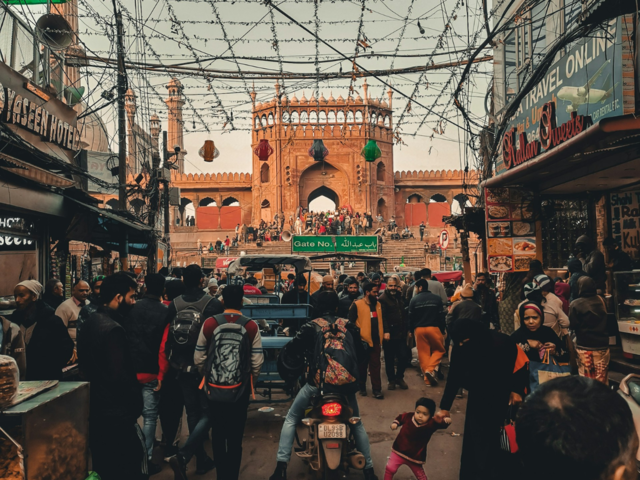
Representational imageUnsplash
Brands now have to put sustainability at the heart of their business; it is a non-negotiable: Paru Minocha, Kantar
Aug 27, 2021, 10:00 IST
brands
Making sustainable choices that don’t burn a hole in your pocket: Here’s how brands can help close The Value-Action Gap
Aug 27, 2021, 10:00 IST
Brands now have to put sustainability at the heart of their business; it is a non-negotiable: Paru Minocha, Kantar
- It is no secret that consumers have started making their purchase decisions based on brands' sustainability practices and it is a topic that just cannot be ignored anymore.
- However, only a handful of brands in India seem to have cracked the code.
- Kantar’s latest report on sustainability revealed that 68% of consumers surveyed worry brands are involved in social issues just for commercial reasons.
- Paru Minocha, Managing Director, South Asia, Insights Division, Kantar tells us how brands convince their consumers about their true purpose and make a real change.
- She further shares what sustainability means to consumers of today and how brands can navigate their journey.
77% of them said that they are willing to invest time and money supporting companies that do good. In fact, 66% of consumers said that they have stopped buying products/services that have a negative impact on the environment and society.
At the same time, the report also highlighted that India is still a price-sensitive market and while purchasing a product, 84% of the same set of consumers said that they end up prioritising saving money over saving the planet. With this, arises a stark dichotomy between Indian consumers’ ideal preferences and real money-spending habits, which Kantar refers to as ‘The Value-Action Gap.’
We caught up with Paru Minocha, Managing Director, South Asia, Insights Division, Kantar to understand how can brands and consumers close this gap, make a real difference, stop putting the environment on the back-burner, what are some of the hot areas in sustainability today and much more.
Excerpts:
Q. How do you think consumer behavior has changed after the pandemic? How important is sustainability for them today?
The pandemic has precipitated and accelerated a change that was already coming. The realization that taking care of oneself and the family will not be enough to keep everyone safe is quite stark. This gives a new meaning to community and responsible living. It also gave us the time to pause and reflect and the consciousness of sustainability could be stemming from both of these. Kantar’s Shopper Barometer report also showcases that after the first wave of the pandemic, 72% consumers were on the look-out for natural / healthier alternatives of their regular use products.
Q. What are some of the areas within sustainability that brands should consider?
The first thing that brands need to consider is that consumer expectations and concerns around sustainability are discrete and differ by categories. Therefore, brands need to recognize where to play- which plank or concern to own and drive. Secondly, brands need to be careful and understand that some are hygiene factors and they may not win big if they offer them, but might lose if they don’t. In Kantar’s Sustainability framework, we call these factors- Shields. The other are concerns that are important to consumers and associated with the category, but not yet championed. These are referred to as Swords- which can be used as differentiating planks by the brands.
Q. Have brands put sustainability on the back burner due to the pandemic? Considering that consumers are asking for no-touch delivery and minimum contact, which can only be possible with one-time-use packaging.
During the pandemic priority for brands was to be available, be safe and keep safe. A lot of good has come out of this churn and sustainability indeed came to the fore-front. A lot of introspection is also happening, both by consumers and brands. While some brands may have paused, many others have activated sustainable behaviors during this time. An example from the food and beverage industry comes to mind- since a consumer could not enjoy coffee at a café and takeaways were essential, some brands like KC Roasters gave 10% off if consumers carried their own mug.
Q. It is no secret that consumers have started making their purchase decisions basis a brand's sustainability practices and it cannot be ignored anymore. However, only a handful of brands in India seem to have cracked it. It is now evident in the report considering that 68% worry brands are involved in social issues just for commercial reasons. So, how can brands convince their consumers about their true purpose and make a real change?
Brands now have to put sustainability at the heart of their business. This is a non-negotiable. When it is authentic and when it becomes a purpose, consumers will trust you and connect with you better. This gives a brand the power in the consumer relationship. Any halfhearted measures will be seen through and those brands will risk rejection by consumers.
Q. Can you share a few examples of Indian brands where they have addressed sustainability successfully?
It’s a journey that is just starting across many organizations. It’s not limited to niche brands, but is a movement that will go mass soon.
A global example is MAC, that pushes the consumers to adopt recycling by giving a free lipstick on return of 6 empties. In India, Dabur is piloting selling toothpaste without the carton pack to save paper and Colgate has launched a first of its kind recyclable toothpaste tube. Another example is Hindustan Unilever (HUL) piloting an in-store vending model ‘Smart Fill’ at Mumbai’s Reliance Smart Acme Mall. Users are offered INR 30 off on the MRP if they use their own bottle and INR 15 off to those who purchase the Smart Fill bottle.
Organic clothing, increasing popularity of electric or hybrid cars all show we are making steps in the right direction.
Q. What are some of the things that brands should keep in mind while working on their
Brands need to give consumers a compelling reason to buy. Fundamental marketing principles continue to apply and sustainability in isolation will unlock consumer behaviour change. Brands need to handhold and nudge the consumers along this behavior change. It is important for them to solve for the 3C’s going forward:
- Cost: and creating desire
- Comfort: and give a clear advantage over current brand
- Convenience: by being present in the moment of truth and making the switch easy
INSIDER INTELLIGENCE REPORTS







